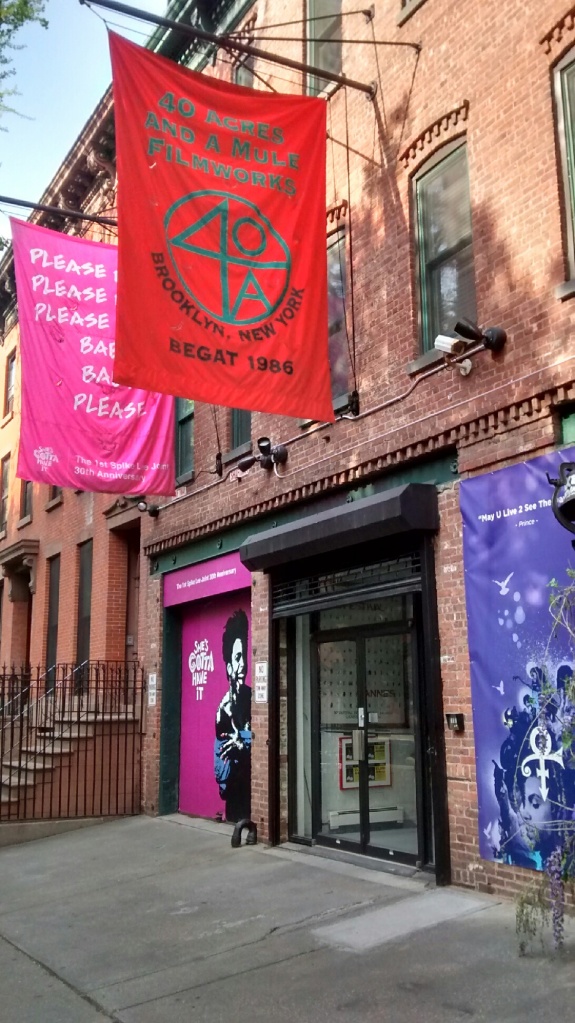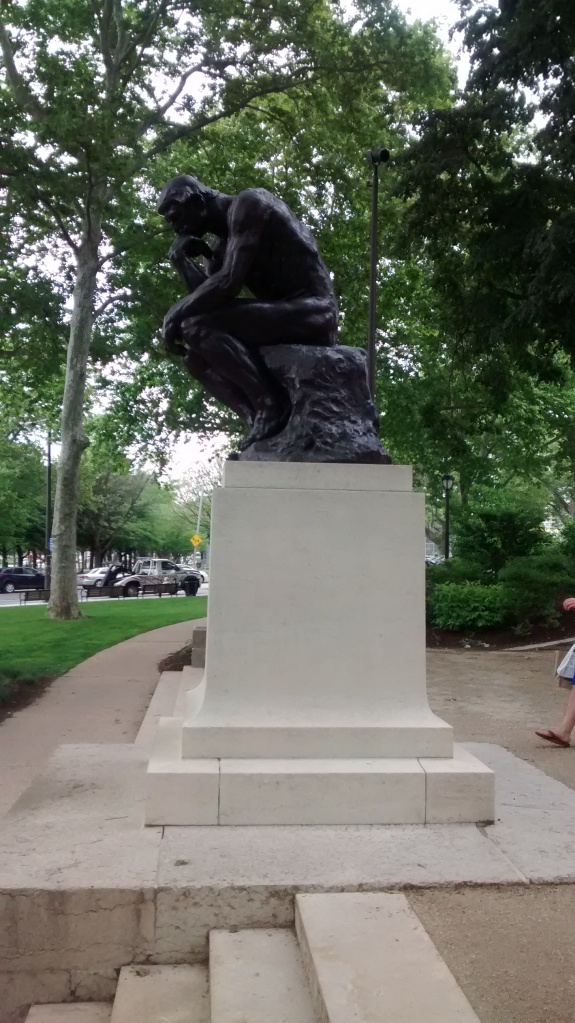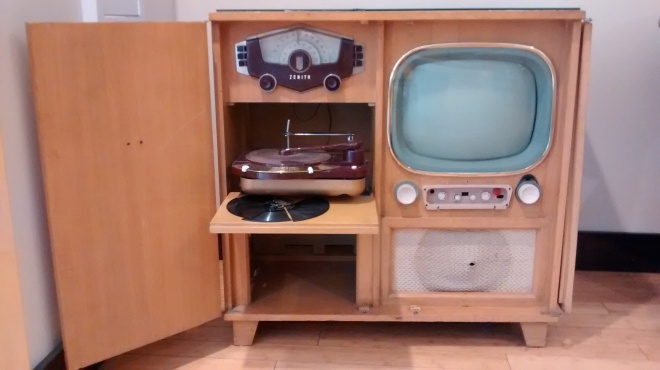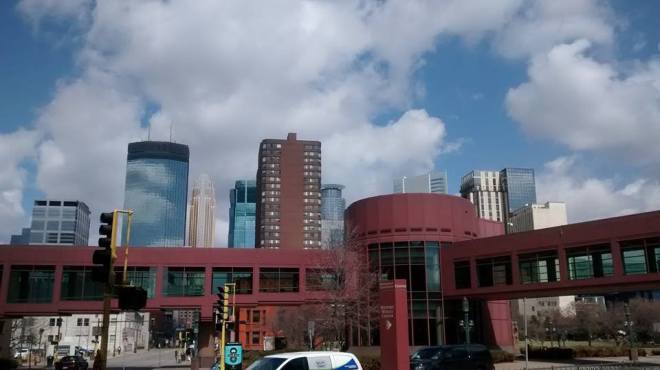
Tony from the Adolescents (photo by Todd Taylor)
There I was, bombed out of my trick, blathering something into a microphone about porn stars and premature ejaculation and people with carrots up their asses. It was one of those beautifully ugly moments when I felt like a fool and an imposter and a guy on top of the world. And the bizarre thing was, I was supposed to be there. I was one of the opening acts for X.
Now, your first question, or at least the first question everyone I tell the story to asks is, “X? The X?” The answer is, yes, the X from Los Angeles. The band that we all saw giving each other bad tattoos and talking like they were the king shits in Decline of Western Civilization. The X who did “Johnny Hit and Run Pauline” and “White Girl” and “Sex and Dying in High Society.” Exene Cervenka. John Doe. Billy Zoom. DJ Bonebreak. That X.
If you know me, then your second question is, “But dude, you’re not in a band. What the fuck were you doing opening for X?”
Therein lies our story.
A few weeks earlier, I’d opened up for Tony from the Adolescents, but in a different context. Someone had started a new spoken word series over in West Hollywood, and they were inviting a bunch of old LA punk rockers to do spoken word performances. Tony seemed like a no-brainer choice to grace that stage. And Tony, being the good guy he is, shared the stage with a couple of local writers: me and Jim “Money” Ruland. The whole night was a pretty cool setup. It was a nice bar with a cool little stage and a few free drinks for the folks who were reading. I got a chance to get up on that stage and tell a story and sell a couple of books. Ruland got a chance to do the same. Everyone seemed to laugh at the times when I hoped they would. We all had fun. And, as a topper for the evening, we all got to listen to Tony tell us a bunch of rad stories not only from the heyday of early LA punk rock, but right up to the present day. It was cool to see how Tony patched the two scenes together, cool to see one of the LA punk pioneers show how the underground keeps going and keeps growing. Tony ended it up with a story about something that had happened to him while his band was touring with Electric Frankenstein, and his story was so sad and hopeful that it damn near broke my heart.
It was my kind of night.
Afterwards, Tony seemed pretty excited. He said to Ruland and me, “I’d like to get you guys in on the Beatfest that’s coming up in a couple of weeks. Would you be interested?”
“Sure,” I said, having no idea what I was agreeing to.
When I got home, I played the Adolescents blue album for the ten thousandth time and looked into what Beatfest was. From what I gathered, it was a grouping of LA bands and writers that would take place on two stages over the course of three nights. The big stage featured acts like Dee Dee Ramone, Steve Earle, and X. The smaller stage featured a bunch of writers who you’ve probably never heard of, and a bunch of people who you have heard of, but who probably aren’t writers, all of whom were doing some form of spoken word. I figured that Ruland and I would get ten minutes each on the small stage, and that was good enough for me. I quit looking into Beatfest and turned up the stereo.
A few days later, Tony called Ruland. As it turned out, Tony had tried to get us onto the small stage, but he wasn’t able to. No worries, though. He got us onto the big stage for the Friday night show, instead. Ruland and I would go on after the Starvations and before the Adz. X would headline. We’d have five minutes each to read something. “Would that be cool?” Tony asked.
“That sounds great,” Ruland said, because he was lying out his fucking ass.
The thing is, what Jim knew and what I knew was that only one thing flies on the stage of a punk rock show, and that’s a punk rock band. I’ve been to thousands of shows over the course of decades and I’ve seen people try all kinds of shit between bands at shows. I’ve seen someone try to show an independent film, and I’ve seen that movie screen get splattered in beer. I’ve seen the makeshift punk stand up act who had to re-write his material so that his whole comedy routine is nothing more than dealing with hecklers. I’ve seen spoken word acts get it the worst. I’ve come to respect that the time between bands at a punk show as a sacred time: a fifteen minute break for punkers to piss and buy beer and say, “Man, those guys sucked live,” and do whatever else it is that recharges them. So if we took the stage between the Starvations and the ADZ and tried to read short stories, we’d get heckled and booed and otherwise humiliated.
But there was another thing, and it was this: Tony from the Adolescents offered this opportunity to us. I can’t speak for Jim here, but I feel like, when someone puts something out into this world that’s so close to perfect – like that Adolescents blue album – and then they ask you to do something, you owe them. And it goes deeper than that. The first time I spoke to Tony, he’d called up Razorcake HQ with some questions for Todd. Since Todd wasn’t around, I answered Tony’s questions and then asked him about a hundred questions about the Adolescents and the Adz and about that crappy move SLC Punk using the Adolescents’ song “Amoeba.” Tony was patient and chatted about all that stuff with me. It was one of those cool moments when I couldn’t be star struck by the singer of a band that meant so much to me because the singer of that band refused to act like a star. And now he was giving me the opportunity to showcase my writing to hundreds of people at an X show. How could I say no?
So Jim and I had to figure out how we were gonna handle this situation. First, we did what Ruland and I do when left to our own devices: we hung out, listened to music, and drank a whole lot of beer. When the first twelve-pack ran out, we bought more. We drank until a nice haze settled in. Somewhere during that haze, I told Ruland about this weird package I’d gotten in the mail from a friend of mine, Jason Willis.
Jason works in an internet porn company, and the company he used to work for had bought out another porn company, and therefore, they got that other company’s office supplies. So while Jason and his co-workers were raiding this defunct company’s offices, Jason came across a box of letters that guys had written to women in porn. The letters were seriously depraved. The guys genuinely thought that, if you simply write a good enough letter to a porn star, she will have sex with you. So they wrote their love letters. And the porn stars never opened them. They left them in a box in an office. No one touched the box until Jason came across it. At which point, Jason and his friends got a good laugh at these guys’ expense. Actually, everyone who read the letters seemed to go through the same stages: for the first dozen letters, they laughed at the guys who wrote the letters; for the next dozen letters, they sympathized – or pitied, even – the letter writers, as in, “Holy shit, this poor fucker is a thirty-five-year-old virgin who thinks he can have sex with a porn actress. How bad must his life suck?”; and, after another dozen letters, they go back to laughing, as in, “Dude, it’s his own fault he’s a thirty-five-year-old virgin. If he can’t figure out that dirty words written to a porn star aren’t gonna solve his problems, then I can have a guilt-free laugh at his expense.”
The next morning, I emerged from the drunken haze to realize that the letters to porn stars were my key to getting through this opening gig for X. The letters would slide me into that nice gray area where there are exceptions to rules, where you realize that the one thing besides punk rock that will fly at a punk rock show is a dirty joke. So I made up a story about how, when we started Razorcake, we rented a PO Box that used to belong to a porno magazine, and we got all these crazy letters to porn stars. I picked out my favorite letters: the one where the guy asks the German porn star for her opinions on the reunification of Germany; the one where the guy in prison talks about how, when he gets out, he’ll take the porn star horseback riding on the shores of Marina del Rey (which, as far as I can tell, has no “shores,” because it’s a fucking marina, not a beach); the one about the middle aged virgin who’s saving himself for the right porn star; the one that discusses how perfectly the photographer caught the picture just as Chloe’s tongue was about to touch Claire’s asshole, but before the tongue actually touched; and, of course, the one about the guy with the carrot in his ass (and no, he wasn’t the Rhythm Chicken). My plan was to tell my story and have Jim read the letters in between my discussion of the stages of reading the letters.
I called Jim with my plan. He liked it. We decided to meet up at his apartment and practice reading the piece. We did meet up at his apartment. We drank beer and listened to music. When the first twelve-pack ran out, we bought more. Somewhere in the haze of the second twelve-pack, we decided that a.) we didn’t need any fucking practice and b.) we should stop fooling ourselves and just buy a case to begin with.
Before too long, Beatfest came around, and ready or not, Ruland and I packed up and headed out to it. Another fellow Razorcaker, Bradley Williams, lived across the street from the venue, so we left early, headed out to Hollywood, and met up with Bradley. We drank more beer and told stories with Bradley and, shortly before it was time for us to head to the show, Bradley put on his own show for us. He pulled out his washtub bass, which is a broomstick stuck into a round metal washtub, with a cord tied to the top of the broom stick and the edge of the tub. Bradley put on a pair of gardening gloves so the cord wouldn’t tear up his fingers, and ripped through a song on the washtub bass. It was too good. We made Bradley play another. And another. It just felt right. The beer was cold. The songs sounded good. We cheered Bradley on until finally he said, “I can’t play no more. My hands are tore up.”
That meant it was time to go to the show.
Tony seemed glad to see Ruland and me. He showed us around the backstage area, which was strangely free of beer, which didn’t matter because I had one in my hand anyway. He walked us by the room where the members of X were. There was a huge sign on the outside of the door that told anyone and everyone to not disturb the band. It seemed excessive, seeing as how there was no one backstage to except Ruland, Tony, and me, and we were more than content to just disturb each other.
After a few minutes, the Starvations wrapped up their set and it was time for Ruland and me. A big curtain closed at the front of the stage. The Starvations started breaking down behind the curtain. The Adz waited to set up their equipment. The sound guy pulled two microphones out in front of the curtain and told us to do our thing. Tony introduced us. I stepped up to the mic. It was weird. The stage was six feet high. Bouncers stood in front of me, poised to protect me from any stage divers or teeny boppers who wanted to storm the stage. As if that would happen. Literally hundreds of people milled around in front of me. I pulled my story out from my back pocket. I was so nervous and had had so much to drink that I couldn’t read the words on the paper. No worries, though, because this always happens to me when I get up on a stage to do a reading, so I memorized my story in advance. I laid in on my bullshit about how these letters had mysteriously appeared in my PO Box. As I paused, Jim read about the premature ejaculators and the marina cowboys. The crowd actually stopped to listen. Not the whole crowd, but a lot of them. Literally hundreds of them. They laughed at all the dick and ass jokes. It was pretty sweet: one of those moments when I was somewhere between a fool and king. Ruland seemed to dig it, too.
After we finished up, the Adz played a pretty fucking awesome set, and then it was time for X. Now, I’m like you. I have X’s Los Angeles album. I have Wild Gift. I’ve listened to them hundreds, if not thousands of times. There was a point in my life when those albums were my soundtrack. The songs from those albums bring back all the feelings from the times when I couldn’t hear them enough. I listen to them and feel years melt away and remember faces and things that I never think about anymore. I reserve those songs for special times when I want to feel like I’m back in some long forgotten era, hanging out with all the people I’ve long since lost touch with. So seeing X play was a pretty special thing for me. Until X took the stage, that is.
They started with one of their hits. I think it may have even been “Johnny Hit and Run Pauline.” It was one of my favorites, but they played it a beat too slowly, and it wasn’t a fast song to begin with. Exene twirled and spun around like she wanted to be some kind of punk rock Stevie Nicks. Clearly she didn’t realize what a contradiction it is to be a punk rock Stevie Nicks. Billy Zoom took his cool guitar pose from twenty years earlier, but not like he was kid who thought he was cool. Like he was an aging comedian performing a Billy Zoom satire. I started drinking faster.
Four songs into the show, X played “We’re Desperate.” I watched John Doe sing out that he was desperate, and I should get used to it. And I thought, dude, I know that you’ve been in over forty movies and have a recurring role on a TV show. You’re not desperate. You’re fucking loaded. Tickets for that very show were something like thirty bucks, and X was getting almost all that money. And, at that moment, I felt like it wasn’t just John Doe. It was all of the members of X who were ruining their own music for me. They were destroying songs I used to love. They were so far removed from the passion that inspired their songs that they sounded like their own worst cover band. I would’ve rather heard a current band like the Selby Tigers play an X song than hear X limp through their own tunes. It just seemed so fake.
And I realized that I wasn’t really one to talk. After all, I’d faked my way through a spoken word act. I skipped out on any attempts at honesty or depth and went for the cheap joke. What I’d done had been far less severe than becoming my own worse cover band, which is what X seemed to be doing to themselves. Still, it made me realize that everyone becomes a bit of an imposter and everyone sells himself a little short when he gets on the stage.
I walked out of the show before listening to X butcher another of their old tunes, thinking about Bradley’s washtub bass and about Tony’s Electric Frankenstien tour story and all the tales that Ruland and I swapped as we swilled our way through twelve packs, because that’s the stuff of real life. That’s the shit that means something. And all this business on a big stage with hundreds of fans: that’s just a diversion.
Author’s note: This is the eighth chapter to a collection of Razorcake columns I wrote. It originally ran in Razorcake #20. For more information about the collection, read this post.


 Tomorrow will be the last stop on my book tour. I’m going to the famed
Tomorrow will be the last stop on my book tour. I’m going to the famed 















